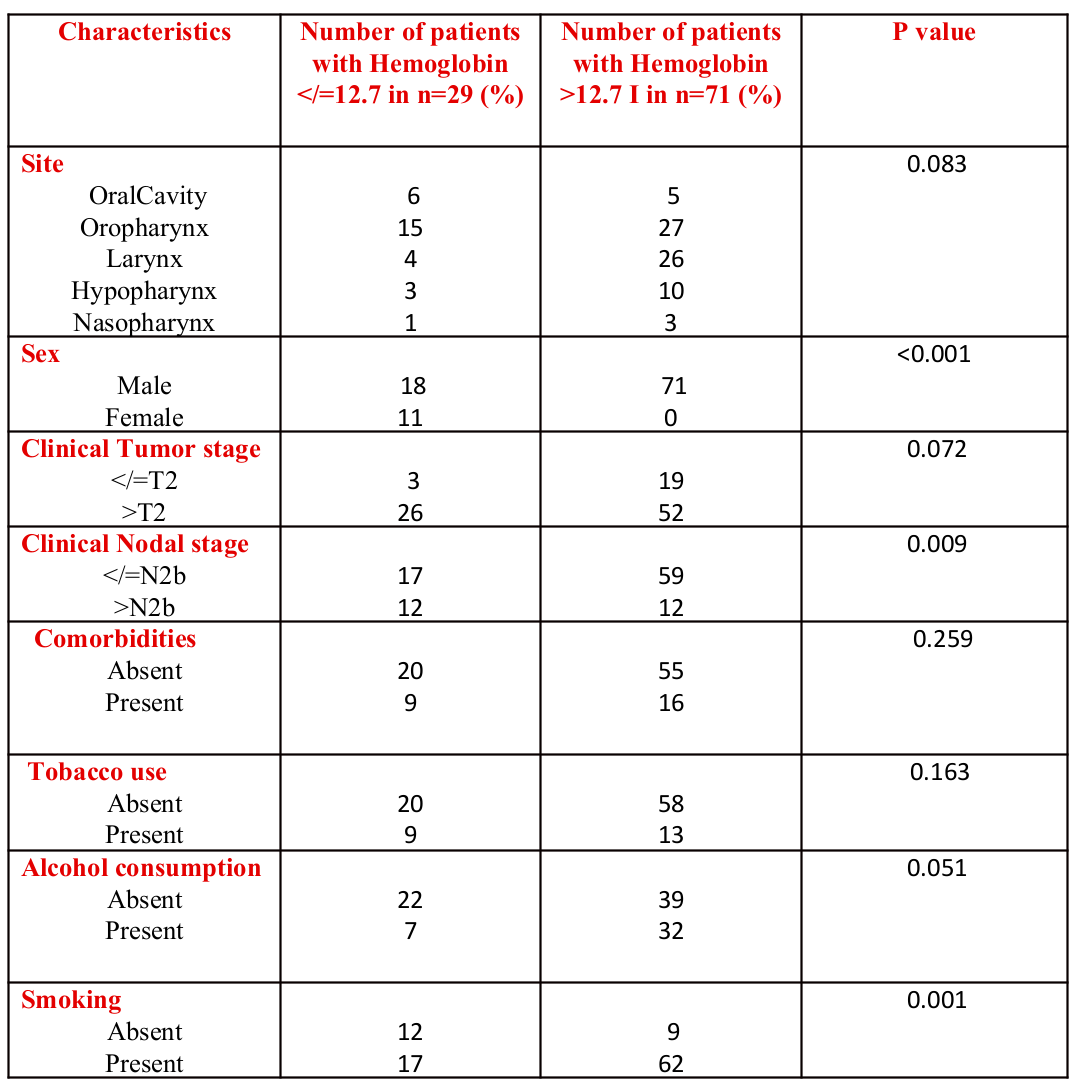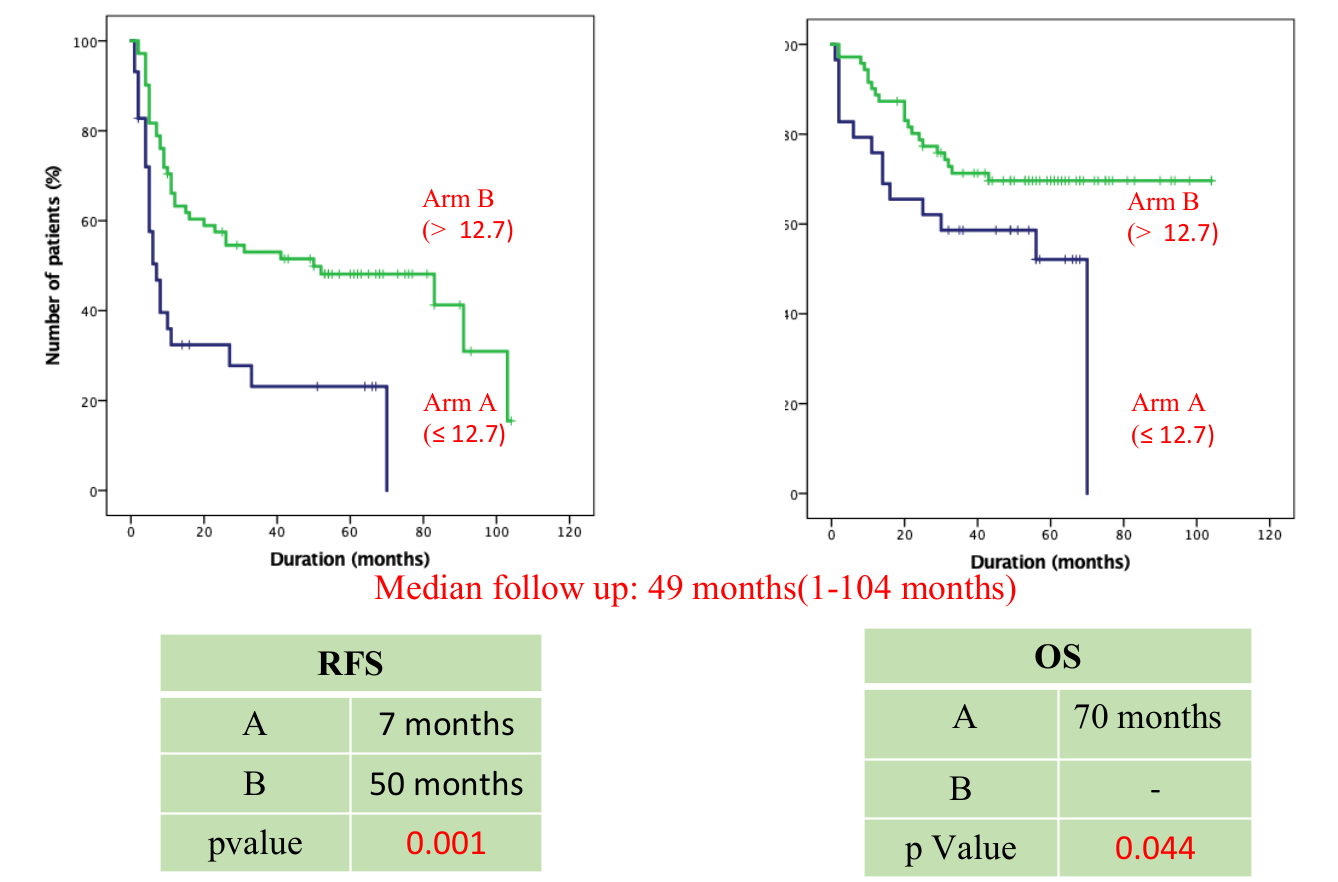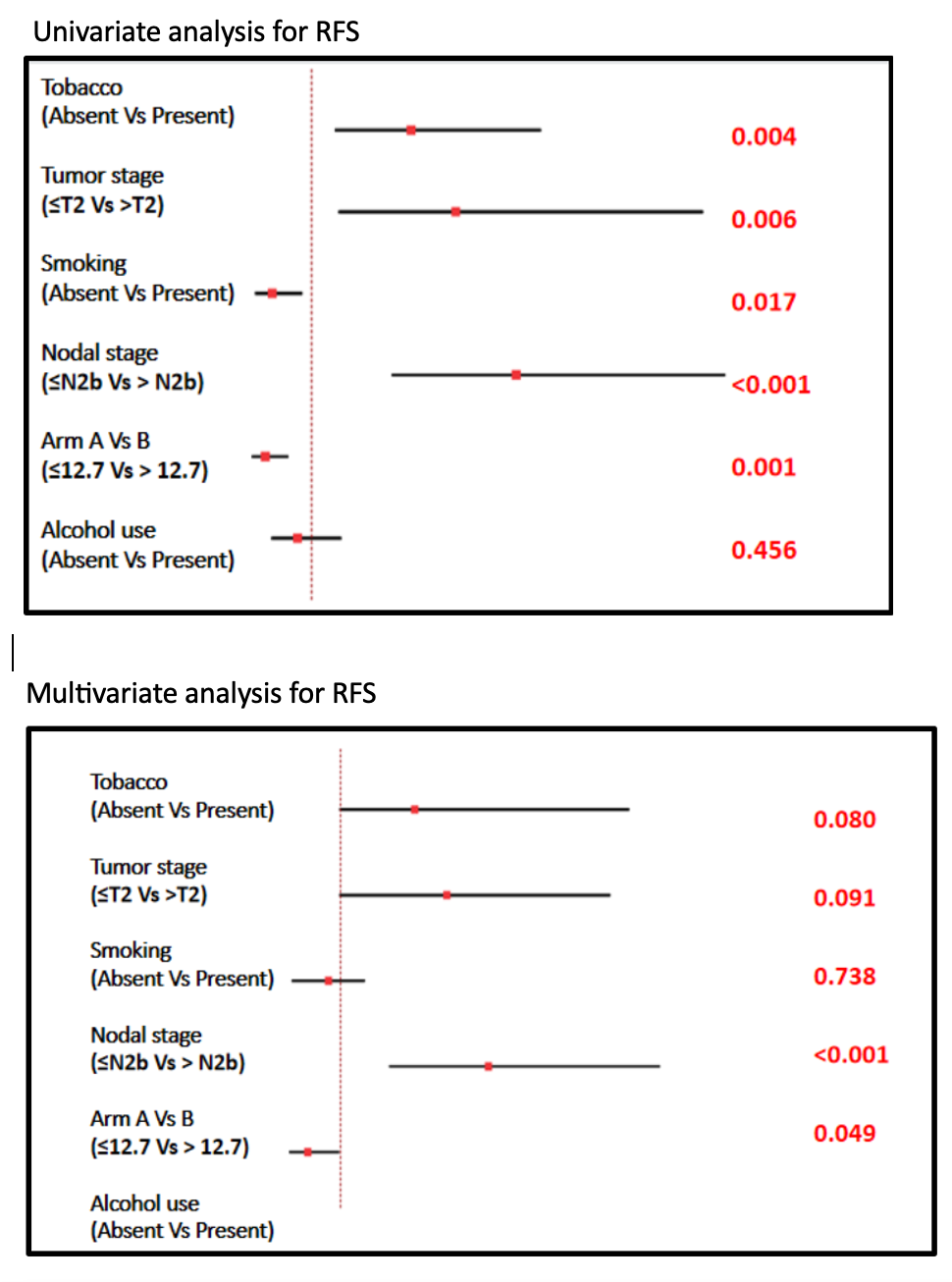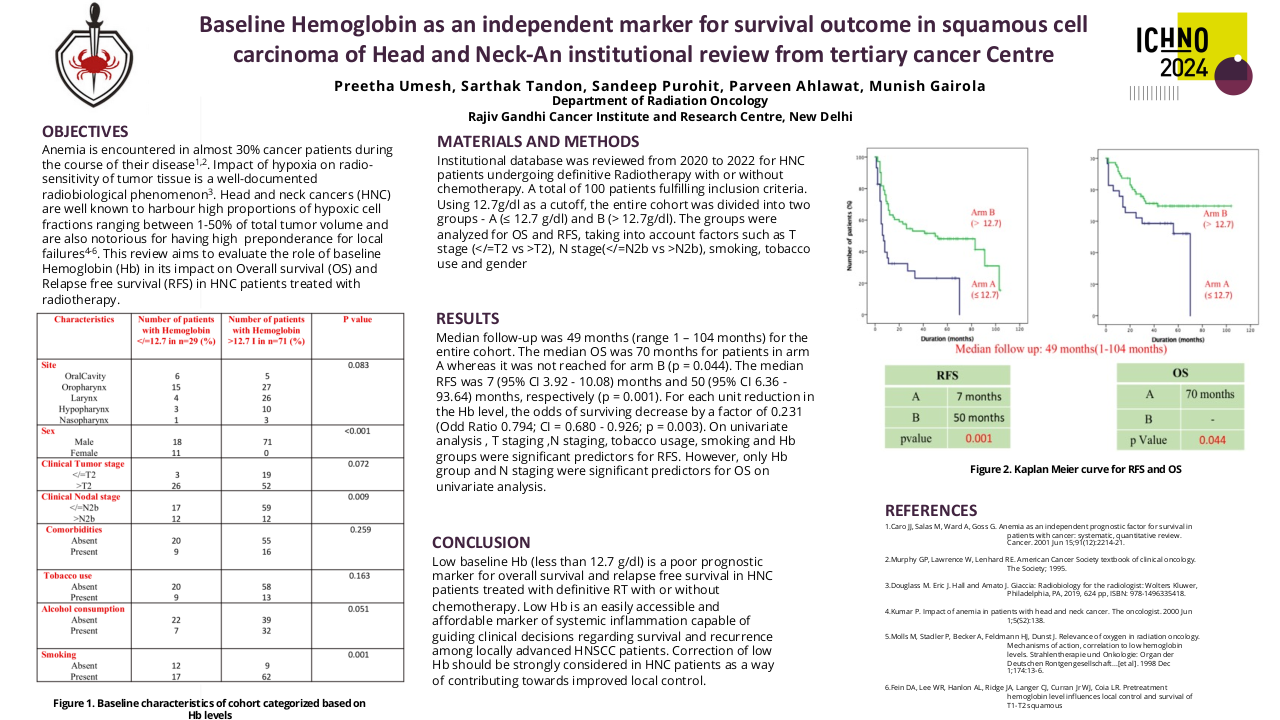Baseline Hemoglobin as an independent marker for survival outcome in squamous cell carcinoma of head and neck- An institutional review from tertiary cancer centre
Purpose/Objective
Anemia is a common obstacle encountered in almost 30% cancer patients during the course of their disease1,2. Impact of hypoxia on radio-sensitivity of tumor tissue is a well documented radiobiological phenomenon3. The presence of oxygen during exposure to radiation is proven to "fix" the damage caused by hydroxyl free radicals which is necessary to prevent the repair of sublethal damage (the underlying mechanism of tumor cell kill). Head and neck cancers (HNC) are well known to harbour high proportions of hypoxic cell fractions ranging between 1-50% of total tumor volume and are also notorious for having high preponderance for local failures4-6. Thus, this combination makes HNC, an ideal site to evaluate the role hypoxia related factors that could impact disease outcomes. Subsequently various treatment strategies have been directed at increasing the oxygenation of tumor ecosystem in head and neck cancers in order to improve loco regional control7. This review aims to evaluate the role of baseline Hemoglobin (Hb) in its impact on Overall survival (OS) and Relapse free survival (RFS) in HNC patients treated with radiotherapy.
Material/Methods
The institutional database was reviewed from 2020 to 2022 for head and neck cancer patients undergoing definitive Radiotherapy with or without chemotherapy. A total of 100 patients fulfilling inclusion criteria and complete data sets were analyzed. Using 12.7g/dl as a cutoff (using historical evidence) for baseline hemoglobin, the entire cohort was divided into two groups - A (≤ 12.7 g/dl) and B (> 12.7g/dl). The groups were analyzed for Overall survival (OS) and relapse free survival(RFS), taking into account factors such as T stage (</=T2 vs >T2), N stage(</=N2b vs >N2b), smoking, tobacco use and gender
Results
The baseline and treatment characteristics were comparable between two groups except for clinical nodal staging ,smoking and gender.The median follow-up was 49 months (range 1 – 104 months) for the entire cohort. The median OS was 70 months for patients in arm A whereas it was not reached for arm B (p = 0.044). The median RFS was 7 (95% CI 3.92 - 10.08) months and 50 (95% CI 6.36 - 93.64) months, respectively (p = 0.001). A logistic regression analysis was performed to ascertain the effect of Hb on the likelihood of the patients that were surviving. The results showed, for each unit reduction in the Hb level, the odds of surviving decrease by a factor of 0.231 (Odd Ratio 0.794; CI = 0.680 - 0.926; p = 0.003). On univariate analysis , T staging ,N staging, tobacco usage, smoking and Hb groups were significant predictors for RFS. However, only Hb group and N staging were significant predictors for OS on univariate analysis.
Conclusion
Low baseline Hb (less than 12.7 g/dl) is a poor prognostic marker for overall survival and relapse free survival in HNC patients treated with definitive RT with or without chemotherapy. Low Hb is an easily accessible and affordable marker of systemic inflammation capable of guiding clinical decisions regarding survival and recurrence among locally advanced HNSCC patients. Correction of low hemoglobin should be strongly considered in HNC patients as it is a low cost, low effort way of contributing towards improved local control.
1.Caro JJ, Salas M, Ward A, Goss G. Anemia as an independent prognostic factor for survival in patients with cancer: a systematic, quantitative review. Cancer. 2001 Jun 15;91(12):2214-21.2.Murphy GP, Lawrence W, Lenhard RE. American Cancer Society textbook of clinical oncology. The Society; 1995.3.Douglass M. Eric J. Hall and Amato J. Giaccia: Radiobiology for the radiologist: Wolters Kluwer, Philadelphia, PA, 2019, 624 pp, ISBN: 978-1496335418.4.Kumar P. Impact of anemia in patients with head and neck cancer. The oncologist. 2000 Jun 1;5(S2):138.5.Molls M, Stadler P, Becker A, Feldmann HJ, Dunst J. Relevance of oxygen in radiation oncology. Mechanisms of action, correlation to low hemoglobin levels. Strahlentherapie und Onkologie: Organ der Deutschen Rontgengesellschaft...[et al]. 1998 Dec 1;174:13-6.6.Fein DA, Lee WR, Hanlon AL, Ridge JA, Langer CJ, Curran Jr WJ, Coia LR. Pretreatment hemoglobin level influences local control and survival of T1-T2 squamous cell carcinomas of the glottic larynx. Journal of Clinical Oncology. 1995 Aug;13(8):2077-83.7.Overgaard J, Horsman MR. Modification of hypoxia-induced radioresistance in tumors by the use of oxygen and sensitizers. InSeminars in radiation oncology 1996 Jan 1 (Vol. 6, No. 1, pp. 10-21). WB Saunders.





